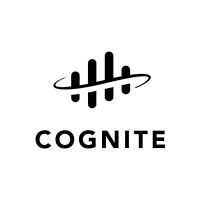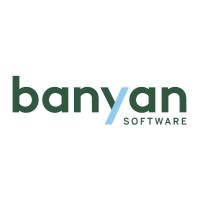AI/ML Software Engineer
Responsibilities:
Solution Architecture:
- Collaborate with cross-functional teams to define the technical architecture and infrastructure required for the adaptive learning solution.
- Collaborate with stakeholders to translate business requirements into technical solutions.
Algorithm Development:
- Develop and implement machine learning algorithms for analyzing digital learning objects and recommending personalized learning paths.
- Design algorithms for skill assessment, content recommendation, and student progress tracking using granular learning analytics data.
Learning Progression Mapping:
- Utilize learning progression maps to guide the delivery of relevant content and skills to students.
Content Customization & Generation:
- Customize existing learning objects and assessments based on student preferences and learning styles.
- Utilize large language models and generative AI solutions to create new content themes while maintaining key ideas and skills.
Data Collection and Preprocessing:
- Design data pipelines to collect and preprocess large volumes of student data, ensuring data quality and privacy compliance.
- Perform feature engineering on large-scale educational datasets.
Model Training and Evaluation:
- Train, validate, and optimize machine learning models for skill assessment, content recommendation, and student progress tracking.
User Interface Integration:
- Collaborate with front-end developers to integrate AI-driven features into the user interface.
Monitoring and Optimization:
- Continuously monitor and enhance the adaptive learning solution based on granular learning analytics data.
- Optimize AI/ML solutions in production environments.
Data Analytics and Reporting:
- Develop dashboards and reporting tools to track student progress and provide insights to educators and administrators.
Documentation:
- Maintain comprehensive documentation of the AI/ML architecture, algorithms, and processes.
Required Skills and Experience:
Technical Expertise:
- Strong software engineering background with expertise in full-stack development, including front-end, back-end, and database technologies.
- Proficiency in machine learning libraries and frameworks such as TensorFlow, PyTorch, scikit-learn, or similar.
- Strong programming skills in languages such as Python, Java, or C++.
- Experience with large language models (e.g., GPT-3, GPT-4) and frameworks like LangChain/HuggingFace, LangFlow, or FlowiseAI.
- Experience with cloud computing platforms (e.g., AWS, Azure, GCP) and distributed computing.
- Familiarity with open-source frameworks and tools (FoSS) and their copyleft implications.
Machine Learning Knowledge:
- Understanding of machine learning concepts, including supervised, unsupervised, deep-learning, transformers, and reinforcement learning.
- Proven experience in deep learning, machine learning model selection, and benchmarking.
Mathematics and Statistics:
- Strong foundation in mathematics and statistics.
Analytical Skills:
- Excellent problem-solving and critical-thinking skills.
- Strong analytical and data-driven decision-making skills.
Communication & Teamwork:
- Strong communication and collaboration skills to work effectively with cross-functional teams and stakeholders.
- Effective communication skills to present technical concepts to non-technical stakeholders.
Continuous Learning:
- Continuous learning mindset and a passion for staying up-to-date with the latest advancements in AI/ML and education technology.
Fast-Paced Environment:
- Ability to work in a fast-paced, research-oriented environment.
Preferred Qualifications:
Cloud-based AI/ML:
- Hands-on experience with cloud-based AI/ML services, such as AWS SageMaker, Google Cloud AI, or Microsoft Azure ML.
Web Development:
- Working knowledge of NodeJS frameworks such as ReactJS, VueJS, or Svelte.
Agile & DevOps:
- Familiarity with agile software development methodologies and DevOps practices.
Similar AI Jobs
Senior Software Engineer II (AI Developer)
at Precisely
Apply Now1 year agoSr Machine Learning Engineer
at Invisible AI
🌎USA
💰$150,000 - $190,000/Yearly
Apply Now1 year agoSoftware Engineer for AI Training Data
at G2i Inc
💰$24 - $25/Hourly
Apply Now1 year ago- Apply Now1 year ago
Software Engineer (Backend)
at Leya AI
💰€62,400 - €90,000/Yearly
Apply Now1 year ago


















